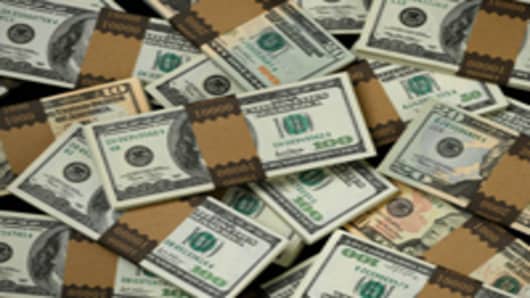When the United States Federal Reserve announced last week that it would buy $600 billion in Treasury bonds to help bolster the economy, it quickly came under attack from Germany, Brazil and China, which said America was trying to devalue the dollar to the detriment of other nations’ exports.
On Monday, the Fed’s plansearned a hearty endorsement from at least one foreign trade partner — India.
“A strong, robust, fast-growing United States is in the interests of the world,” said Prime Minister Manmohan Singh. “And therefore, anything that would stimulate the underlying growth and policies of entrepreneurship in the United States would help the cause of global prosperity.”
Mr. Singh, an economist by training, made his comments during a joint news conference here with President Barack Obama. The prime minister’s support could help the United States deflect criticism of Washington’s economic policies at the upcoming Group of 20 meeting in Seoullater this week, which both Mr. Obama and Mr. Singh will attend.
President Obama, perhaps less surprisingly, also voiced support for the Fed policy in his first public comment on the action.
“The worst thing that could happen to the world economy — not just ours, but the entire world’s economy — is if we end up being stuck with no growth or very limited growth,” Mr. Obama said. “I think that’s the Fed’s concern and that’s my concern, as well.”
The two leaders’ comments came on the third day of a 10-day Asia swing for President Obama — a journey the White House is characterizing as an economic mission. China, Germany, Brazil and other nations with big surpluses in exports and their current accounts — a broad measure of foreign trade and financial dealings — tend to see the Fed’s planned bond purchases as flooding the market with dollars. That cheapens the American currency, critics say, and makes other countries exports less price competitive.
The Fed’s action, by lowering American interest rates, can also cause money to flood into other countriesas investors seek higher returns — which can threaten to overheat those countries’ economies.
But in the news conference here, Mr. Obama countered with a not-so veiled criticism of China and other countries with large trade and current account surpluses. He said the world needed a broad rebalancing.
“We can’t continue to sustain a situation in which some countries are maintaining massive surpluses, others massive deficits and there never is the kind of adjustment with respect to currency that would lead to a more balanced growth pattern,” Mr. Obama said.
At the G-20 meeting, the president intends to press other countries to embrace a non-biding target to limit their current account surpluses and deficits to no more than 4 percent, according to an administration official. The administration is also expected to press the International Monetary Fund to take a greater role in monitoring trade patterns and intervening on exchange rate disputes.
"A strong, robust, fast-growing United States is in the interests of the world... therefore, anything that would stimulate the underlying growth and policies of entrepreneurship in the United States would help the cause of global prosperity."
With United States unemployment stuck at 9.6 percent, some economists are arguing that the American economy needs an additional spur. But because the Fed’s action might lower the value of the dollar , is has led to criticism that the United States government — which has long complained about China’s currency devaluation — is acting hypocritically.
Mr. Obama and Mr. Singh made their remarks in response to a question about comments made last week by the finance minister of Germany, who in a recent interview with Der Spiegel called the Fed’s decision “undermining the credibility of U.S. financial policy.”
The minister, Wolfgang Schäuble, went on to say, “It doesn’t add up when the Americans accuse the Chinese of currency manipulation and then, with the help of their central bank’s printing presses, artificially lower the value of the dollar.”
Privately, American officials say they were miffed by Mr. Schäuble’s comments, saying it was a breach of protocol for the foreign minister of one country to criticize the central banker of another.
Still, there was more criticism from finance ministries on Monday. In Beijing, the vice finance minister, Zhu Guangyao, told reporters on Monday that America “did not recognize its responsibility to stabilize global markets and did not think about the impact of excessive liquidity on emerging markets.”
Mr. Singh appears to have taken a different tack by supporting Mr. Obama and the Fed in part because India is not as dependent on exports as China, Germany and Brazil. India’s currency, the rupee , has also appreciated less in relation to the dollar than others like the Brazilian real .
“Of all the various countries in the G-20, the one that is least dependent on export-led growth is probably India,” said Suman Bery, director general of the National Council of Applied Economic Research in New Delhi. “India has more to gain by reactivation of the U.S. economy than it has to lose from a depreciation of the U.S. dollar.”
Furthermore, India, unlike other developing nations like Brazil and Thailand, has generally welcomed foreign capital that has flooded into emerging markets in search of higher-yielding assets. India needs foreign investment to help fund its large current account deficit — more than 3 percent of its gross domestic product. Foreign money pushed up the stock market here to a new record high last week and it has driven up the rupee nearly 6 percent since August.


